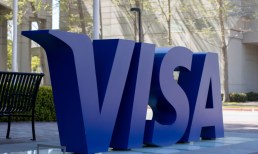With falling prices, the Silk Road trial and various miners going bankrupt, it would be hard to say that so far 2015 has been a banner year for bitcoin. Then again, it seems that the digital currency’s fortunes are improving, as corporate America is beginning to take a closer look.
Big bets on the blockchain-ledger technology behind bitcoin are emerging, premised on the idea that it one day might disrupt how sensitive data of all kinds is moved.
“The price of handling bits [of data] has come down by a factor of 10,000 fold over the last generation; it’s high time that the costs of payments processing fall by a factor of even two,” says former U.S. Treasury Secretary Lawrence H. Summers, according to The Wall Street Journal. “Bitcoin offers the prospect of necessary and important disruption in finance for the benefit of buyers and sellers rather than financiers and middlemen.”
While everyday consumers are wary or confused by the the blockchain, investors are seeing a potential to use the blockchain ledgers, which are verified, updated and maintained by a decentralized network of independently owned computers. Theoretically, people and businesses can engage in peer-to-peer online exchanges of assets, money and information in a way that removes the bankers as middlemen.
“It’s an opportunity for Wall Street to streamline some operations that are pretty antiquated,” says Duncan Niederauer (according to the WSJ), the former chief executive of the NYSE Euronext, who this week became an adviser to TeraExchange, the first Commodities Futures Trading Commission-regulated bitcoin derivatives platform.
It’s not clear today that the bitcoin network can be sufficiently scaled up – right now bitcoin handles about $50 million in transactions, but it would need to be able to handle $5 trillion in transactions traded in world foreign exchange markets.
Advertisement: Scroll to Continue
However, insofar as serous people are giving it serious consideration as a major improvement for the digital currency – a year ago it was more likely to be seen as a fringe product for extreme tech fans and libertarians.
We’d love to be your preferred source for news.
Please add us to your preferred sources list so our news, data and interviews show up in your feed. Thanks!
In January, the New York Stock Exchange, USAA Bank, Spanish banking conglomerate Banco Bilbao Vizcaya Argentaria SA BBVA and former Citigroup Inc. chief executive Vikram Pandit took stakes in bitcoin consumer services and exchange provider Coinbase.
Additionally, USAA and Citi Ventures are working with startups through San Francisco’s Plug and Play Tech Center.
And while investments are rolling in, personnel is moving around. Arthur Levitt – a former Securities and Exchange Commissioner – has moved on to advising payment processor Bitpay. Blythe Masters, a J.P. Morgan Chase & Co. executive credited with pioneering the global credit derivatives industry, has moved on to blockchain trade settlement firm Digital Assets Holdings. Former National Economic Council director Gene Sperling is now working with Ripple Labs, named as a director.
A wider investment pool could dampen the notorious price volatility associated with bitcoin — which could make it more appealing as a currency.
Boston University professor Mark T. Williams, a vocal bitcoin critic, still isn’t buying it. “What complicates things is this is a nationless currency,” he said. “What regulatory bodies are supposed to be responsible for it?”
Anarchist Cody Wilson weirdly agrees with Williams and bemoans that new bitcoin entrepreneurs “desire authority.” They “give lip service to libertarian ideals but actually discard anything that appears to be revolutionary,” he said.
Many also wonder whether banks and other legacy institutions might one day quash the technology if it threatens revenues from businesses such as credit cards.
 Add as Preferred Source
Add as Preferred Source



